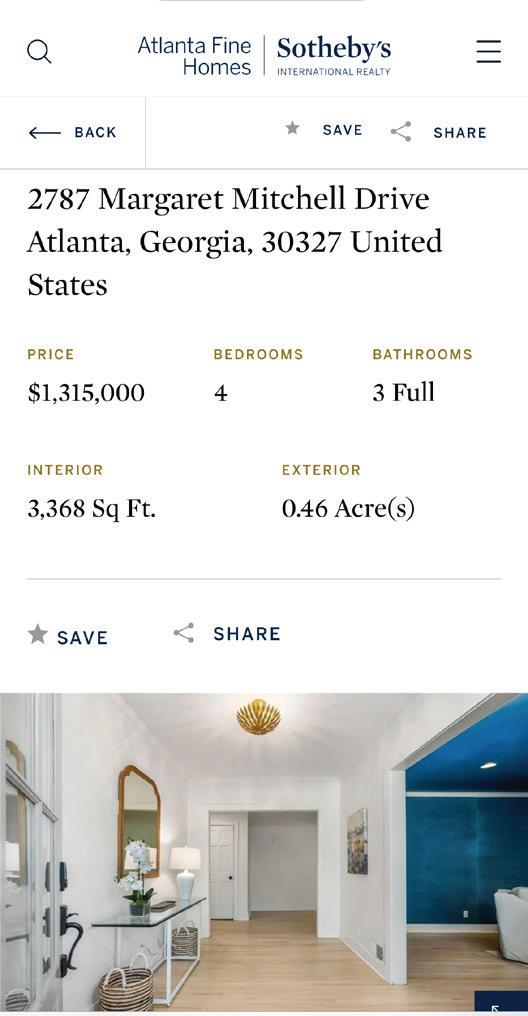GUIDE


BRANDON PATTERSON



BRANDON PATTERSON
“When it comes to real estate agents, Brandon is truly in a league of his own. His level of expertise about the market, his attention to every detail, his ability to truly listen and understand what we were looking for and his authentic nature made our entire home-buying experience an exceptional process. Brandon’s years of experience and his calm demeanor were instrumental as he helped us navigate what could have been a very tricky negotiating process. Through due diligence and closing, his patience and passion for making the entire process stress-free truly set him apart. There is no other agent I would recommend more than Brandon.” – Nicole S.
“Brandon Patterson is hands down the best agent I’ve worked with – that’s saying a lot because I’ve bought and sold 18 properties.” – Amy M.
“Brandon went above and beyond to make sure our first home-buying experience was smooth and as easy as possible. I can’t recommend him enough if you are in the market for a new home. He has an extreme knowledge of the market in Atlanta which helped us find our first house. Brandon has continued to help us throughout the process with contacts for house improvements which have all been fantastic. Overall, you can tell Brandon cares about his clients and wants to make sure you are getting the best deal possible. If we could give more than five stars we would.” – Lizzie E.
“This is my second time using Brandon as my real estate professional and he has been nothing but excellent both times. His knowledge of the market, the neighborhoods and his ability to make a property show at its best is uncanny. I highly recommend Brandon Patterson.” – Lee R.
“We can’t rave enough about Brandon! A cross-country relocation is stressful and oftentimes very confusing. After seeing a few properties with Brandon, we knew we were in good hands. One of his greatest qualities is his ability to, not only listen, but hear what you’ve told him concerning your real estate wants and needs. After looking at many properties we were beginning to think we wouldn’t find anything without a long wait. Because of Brandon’s skill, insight and patience, he never gave up and we closed in only 60 days after the start of our search. He’s smart, savvy, patient, insightful and just a delightful person who goes above and beyond. Without any hesitation, we soundly recommend Brandon for your real estate needs.” – Veronica H.

Brandon Patterson is a seasoned real estate professional with over 20 years of experience and a top-producing REALTOR® in Metro Atlanta. Known for his strategic expertise, Brandon has a keen ability to negotiate deals that align with his clients’ goals, ensuring each transaction is handled with precision and care. For Brandon, buying or selling a home is more than just a transaction; it’s a pivotal life event that deserves a meticulous, tailored approach.
Brandon’s background as a Public Affairs Officer in the Air Force Reserve—where he serves one weekend a month—is foundational to his work. The Air Force core values of Integrity, Service and Excellence are deeply woven into his real estate practice. These principles drive his unwavering commitment to his clients’ best interests, whether he’s negotiating a complex sale or guiding first-time buyers. His honesty, dedication and commitment to excellence are hallmarks of his service.

With a dedication to continuous improvement, Brandon has completed seven Ninja Selling installations, a testament to his commitment to providing exceptional service. This extensive training has refined his skills in relationship-building, strategic negotiation and effective communication, equipping him with tools to elevate his clients’ real estate experiences. Empowered by the Ninja philosophy, Brandon approaches each transaction with a solutions-focused mindset, ensuring a seamless journey for his clients from start to finish.
Residing in Dunwoody with his partner, Alex, and their two doodles, Piper and Riley, Brandon has a strong personal connection to his community. This local insight, paired with his expert negotiation skills, allows him to deliver remarkable results while making his clients feel at ease throughout the process.
• NO. 1 AGENT, COBB OFFICE, UNITS SOLD, 2022 & 2023
• NO. 1 AGENT, COBB OFFICE, VOLUME, 2023
• NO. 2 AGENT, COBB OFFICE, VOLUME, 2022
• TOP PERFORMER, COMPANY-WIDE, 2016 - 2024
• TOP PRODUCER, ATLANTA REALTORS ®, 2016 - 2023
• TOP 400 REALTORS ® IN METRO ATLANTA, 2022
• TOP 3%, COMPANY-WIDE, VOLUME, INDIVIDUAL AGENT, 2022
• TOP 5%, ATLANTA REALTORS ®, UNITS SOLD, 2020 - 2023
• TOP 5%, ATLANTA REALTORS ®, VOLUME, 2020 - 2023
• TOP 10%, ATLANTA REALTORS ®, UNITS SOLD, 2016 - 2018
• TOP 10%, ATLANTA REALTORS ®, VOLUME, 2016, 2017 & 2019
PREPARE FOR CLOSING
LOAN PROCESS, APPRAISALS AND CONTINGENCIES
UNDER CONTRACT: TIMELINES, INSPECTIONS AND VENDORS
CONSULTATION/ ANALYZING YOUR NEEDS
MY VALUE TO YOU AS YOUR REALTOR®
PREPARE STRATEGIC OFFER/PRICE COMPARISON
EDUCATE ON VARIOUS CONTINGENCIES AND TERMS, REVIEW DISCLOSURES
PRE-APPROVAL FINANCING OPTIONS PURCHASING POWER
IDENTIFYING ON- AND OFF-MARKET PROPERTIES
COORDINATE AND SCHEDULE PROPERTY SHOWINGS
leverage our brand’s heritage and sophistication.
connect with affluent consumers who share our vision.
go above and beyond to meet clients’ needs.
offer the only true, worldwide luxury real estate network.
partner with leading media to obtain the best exposure.
provide unparalleled reach to qualified buyers and sellers.
showcase every home with the highest quality production.
utilize the latest technology for even greater impact.
deliver a singular client experience.
Sotheby’s International Realty®
Coldwell Banker
Berkshire Hathaway HomeServices
Compass
Douglas Elliman
Engel & Völkers
Keller Williams Realty
Knight Frank
Christie’s International Real Estate
Leading RE



The exposure and worldwide reach for the homes we represent are a crucial differentiator that sets us apart from the rest of the industry. As soon as your home is showcased on atlantafinehomes.com, it is exclusively distributed to the most authoritative news, luxury lifestyle, financial and real estate-centric websites worldwide.
START EACH DAY ONE GIANT STEP AHEAD
The Sotheby’s International Realty® brand is built on the centuries-long prestige of the world’s preeminent auction house. Our unmatched reputation gives the properties we represent the best-in-class exposure they deserve and assures buyers they are working with experts they can trust — no matter where they are in the world.


NOTHING COMPARES TO WORLDWIDE RECOGNITION
Sotheby’s International Realty is the only truly global real estate brand with 26,500 advisors working in more than 1,115 local offices across 84 countries and territories. Our sellers reach a highly qualified global clientele through our personal relationships and unparalleled network.
With an emphasis on exclusivity, the Sotheby's International Realty brand’s advertising plans are driven by a consumer-centric approach targeting potential homebuyers and sellers at all stages of the real estate journey. Our robust digital and print strategy is aimed at showcasing homes to highly qualified homebuyers.




Scan
NOTHING COMPARES.



Atlanta Fine Homes Sotheby’s International Realty hand-selects premier print publications and digital platforms to advertise the homes we represent. From daily blog and social media posts to targeted print and digital publications focusing on real estate, lifestyle, art, regional events and philanthropic missions, we ensure your home receives enhanced exposure, translating to more buyer inquiries, showings and activity. Our local media partners include the Atlanta Business Chronicle, Atlanta INtown, the Buckhead, Brookhaven, Dunwoody and Sandy Springs Reporter Papers, North Fulton’s Appen newspapers and more.
Sotheby's International Realty has a growing number of more than 1M followers worldwide viewing content on Instagram, YouTube, Facebook, TikTok, Pinterest, LinkedIn, Twitter, WeChat and our popular RESIDE® Blog. Together with Sotheby's International Realty, we craft and share exclusive content for people passionate about fine living and leverage targeted social media marketing to ensure your property reaches the web’s most sophisticated buyers.








Video plays an important role in our marketing strategy, the Sotheby's International Realty award-winning YouTube channel has more video views and subscribers than any other real estate brand.
Atlanta Fine Homes Sotheby’s International Realty is one of the highest-performing real estate companies in the nation and, having closed $3.7 billion in sales last year, proudly ranks No. 1 in Metro Atlanta for total sales volume.
$5,921,407
TrendGraphix, Top Five Firms, January 2024. Agent Productivity. January 1, 2023 - December 31, 2023; All FMLS Counties; All Price Points.
Our clients benefit from our firm’s global reach, powerful marketing and superior professional service, regardless of price point. In addition to record-setting sales, 49% of our transactions in the past 12 months were under $650,000.
TrendGraphix, January 1, 2023 — December 31, 2023. Data deemed reliable but not guaranteed.

MOVE BEYOND YOUR EXPECTATIONS
• METRO ATLANTA: CHEROKEE, COBB, DEKALB, FORSYTH, FULTON AND GWINNETT COUNTIES
• BUCKHEAD AND INTOWN HOME SALES
• BROOKHAVEN AND SANDY SPRINGS HOME SALES
• NORTH FULTON AND SOUTH FORSYTH HOME SALES
• METRO ATLANTA LUXURY HOME SALES, $1M+
• METRO ATLANTA LUXURY HOME SALES, $3M+
• METRO ATLANTA NEW CONSTRUCTION
TrendGraphix, January 1, 2023 — December 31, 2023. Data deemed reliable but not guaranteed.
They say there’s strength in numbers. With more than $3.7 billion in sales last year, over 580 sales associates and four offices in Buckhead, Cobb, Intown and North Atlanta, Atlanta Fine
Homes Sotheby’s International Realty is the area’s premier residential real estate brokerage. Our offices are strategically located across Metro Atlanta, providing convenient access points for our clients and critical exposure to buyers.








We offer unparalleled exposure and worldwide reach for your home. Our website, atlantafinehomes.com, is powered by the award-winning sothebysrealty.com platform, allowing us to leverage the millions of buyers monthly, immersing them in your home through rich content such as high-resolution photos, ultra-high-definition videos and virtual reality tours. The rich and relevant content available on atlantafinehomes.com enables the site to have the best ranking positions in search engines like Google, maximizing the chances for a buyer to find your home. Homes from around the globe can be accessed seamlessly on any device, and mobile users can directly text a sales associates.



Alongside my wealth of experience, network and expertise, brandon-patterson.com is an additional resource available to help you reach your real estate goals. Prospective buyers and sellers can search listings, request property evaluations, peruse my portfolio of work and connect with me.




THE MARKET VALUE OF YOUR HOME IS
• What a buyer is willing to pay for the property today
• Based on today’s market
• Based on today’s competition
• Based on today’s financing
• Based on today’s economic conditions
• Based on the buyer’s perception of property condition
• Based on location
• Based on normal marketing time
THE MARKET VALUE OF YOUR HOME IS NOT
• What you have in it
• What you need out of it
• What it is appraised for
• What you heard your neighbor’s house sold for
• What the tax office says it is worth
• What it is insured for
• Based on memories and treasures
• Based on prices of homes where you are moving
AS A SELLER, YOU DO CONTROL
• The price you ask
• The condition of the property
• Access to the property
• The agent you choose to sell your home
AS A SELLER, YOU DO NOT CONTROL
• Market conditions
• The motivation of your competition
• Value
Home is where your heart is. Houses, on the other hand, are commodities sold on the open market. Most people do not see their houses after living there for a while. They do not notice the effects of gradual physical deterioration and junk accumulation. Little stuff to the seller; not so little stuff to a buyer! If you make the right improvements when preparing your house to sell, you increase the odds of selling it quickly for top dollar. If you do something wrong or make the wrong changes to your property, you save the time and money you spent, prolong the sale or reduce the ultimate sale price.
Buyers generally decide if they want to see the inside within 20 seconds of viewing your property’s external attractiveness (curb appeal). No matter how magnificent your house is on the inside, many buyers will drive by without even stopping if the curb appeal doesn’t say, “I’m loved, and I’m cared for.” The following, at a minimum, should be addressed when you put your house on the market:
• Attractive landscaping provides instant curb appeal. Keep the lawn mowed and tidy. Freshen the flower beds. Add fresh pine straw or chips.
• If the exterior paint is old and not in top condition — paint. A bucket of paint provides a good return on investment! On top of making your house look better physically, psychologically, it translates to the buyer that you love the house so much that you take care of it. That counts.
• Repair/replace torn window screens.
• Replace cracked window panes.
• Make sure windows are operable.
• Wash windows so they sparkle.
• Pressure wash the deck and driveway if necessary.
• Clean the gutters.
• If the roof is stained, have it professionally cleaned.
Exteriors attract, but interiors sell! Curb appeal draws buyers into your house, but appealing, well-cared-for interiors make the sale. Usually, you do not have to spend thousands of dollars on your home prior to putting up the For Sale sign. On the contrary, the little things you do generally give the most significant increase in value.
Clean it up, clear the clutter and make cosmetic improvements.
Your stove, oven, refrigerator, microwave oven and other appliances must be spotless inside and out. Scour walls, floors, bathtubs, showers and sinks until they sparkle. Buyers will notice strong smells as soon as they enter your front door, so eliminate smoke, mildew and pet odors. Cleaning drapes and carpets help get rid of odors. Dehumidifiers help musty basements. If you are a smoker, clean all ashtrays daily. Use air fresheners or citrus-scented potpourri to keep your house odor-free. Whether you do the work or hire someone, ensure your house is spotless and odorless.
Clutter can reduce your house’s value. Clear away kitchen counters and keep dirty dishes out of the sink. Eliminating clutter and excess furniture makes rooms appear larger. Recycle those stacks of old magazines and newspapers you have been saving for no good reason. Dump all that junk you have accumulated in your attic and basement over the years. Closet space sells houses. Clean those closets out and organize them. Get rid of all those clothes you do not wear anymore. Make them look large and roomy! Do the same with built-in drawers. Like it or not, serious buyers will inspect your closets and built-in drawers.
Painting isn’t expensive if you do it yourself, but be careful when selecting colors. Avoid bold colors with strong visual impact. Stick to conventional soft whites and neutral colors that will not clash with most prospective buyers’ tastes. If your finished basement is dark and gloomy, paint the walls and ceiling a light color.
Pay attention to everything in your house that could cause the buyer to “reduce your price.” Find it and repair it before you put it on the market. Look for hairline cracks over doors or windows and nail pops in sheetrock. Locate any ceiling stains and the source of the leak. Check for windows with cracked panes that don’t open and shut properly. Watch for doors that stick, do not close or slide properly. Examine bathrooms for mildew, rust stains in sinks and toilets, missing tiles or grout or inadequate caulking around tubs. Check for drippy faucets, slow-draining sinks and tubs, broken mirrors, etc. Check all kitchen appliances that remain with the property.


LISTING YOUR PROPERTY
• Property listed with the First Multiple Listing Service (FMLS) servicing over 33,000 agents across Metro Atlanta
• Professional photography
• Wooden yard sign
• Professionally designed and printed (or digital) listing brochure and postcard
• Professionally designed eblast sent to our wide-reaching agent network
• Targeted Facebook advertisement
• Personal social network outreach with an Instagram feed post
• Professionally written featured story on the Atlanta Fine Homes Sotheby’s International Realty blog
• Matterport 3D Virtual Tour
• Weekly analysis Listrak reporting
ADVERTISING LOCALLY
• Introducing postcard distributed to a radius around the home and sphere of influence
• Presented on the award-winning AtlantaFineHomes.com with the listing price available in more than 50 currencies and total site translation into 17 languages for global clientele
• Professional blog post published on the Atlanta Fine Homes Sotheby’s International Realty blog
• Broker open luncheons promoted via eblast and open houses promoted via signs and multiple platforms, including AtlantaFineHomes.com, SothebysRealty.com, Zillow.com and Realtor.com

• Market listing to the most significant companies and real estate-focused websites in the world, generating more than 1 billion impressions each year, including SothebysRealty.com, Juwai.com, Nikkei.com, WSJ.com, Homes.com, Realtor.com, Zillow.com and more
• Showings by appointment
• Special feature cards posted throughout the property to point out unique items that a buyer might miss
• Networking with agent population
• Daily updates of pertinent market changes as they occur
This is a 90-day plan. After this, we will revisit and re-target accordingly based on market feedback.






ELEVATE YOUR LISTING WITH
Virtual staging is the transformation of a single photo into a uniquely virtually staged scene to make homes that are not furnished or need a refreshed look more appealing. Virtually staged photos can be used for online marketing exposure on sothebysrealty.com, Apple TV and SIR Mobile and will also be sent to the brand’s syndication channel partners. Any home can be transformed using virtual staging technology.
• Landscape (weed flower beds, add fresh, dark mulch, add a bit of colorful, seasonal plants/flowers, if possible)
• Mow the lawn
• Clean the pool and remove pool cleaners and toys
• Fluff and freshen cushions on patio furniture
• Clean windows and the front entryway to make it look its best
• Pressure wash the house, driveways, walkways, patios and decks, if necessary
• Declutter all rooms, closets and pantries
• Replace any nonfunctional lightbulbs
• Clean windows and walls with visible marks or blemishes
• Remove cars from the driveway/front of the house and park across the street
• Remove garbage cans from view
• Put away garden hoses, sprinklers, shovels, etc.
• Remove fallen leaves and other debris from trees
• Open window covers and turn blinds horizontal
• Clean floors and remove all smudges and footprints
• Vacuum carpet
• Turn off televisions and hide remote controls
• Hide all power cords, cables, phone chargers, etc.
• Turn off ceiling fans
• Tidy the closet
• Clean and clear the kitchen countertops (remove detergents, sponges, rags, dishes, etc.)
• Add fresh flowers or fruit to the kitchen and dining room
• Remove stickers and magnets from the refrigerator
• Clear and clean the countertops in the bathroom (remove soap, toothpaste, face wash, shampoo, etc.)
• Refill toilet paper rolls so they are not empty
• Make sure all beds are made and are wrinkle-free
• Turn on ALL lamps and lights
• Remove pet bowls, beds and toys
• Hide waste baskets
• Remove any items, photos, etc. that you do not wish to be photographed
SPECIAL NOTE : Please remove pets from the premises prior to the photoshoot. While your animals may be small and/or friendly, our photographers carry large equipment that can sometimes threaten and confuse animals.


Expect inspectors to poke into everything — your house’s roof, chimney, gutters, plumbing, electrical wiring, heating and cooling systems, insulation, smoke detectors, all the permanent appliances and fixtures and the foundation. They will also check for health, safety and environmental hazards. You can bet they’ll also look for damage from wood-destroying insects (carpenter ants, termites and powder-post beetles), dry rot and fungus infections. Whew! The question is, what do you, the seller, do about inspections? Pre-inspect before the buyer, or wait until the buyer inspects to respond?
In the State of Georgia, a seller must disclose any known defects to prospective buyers via a Seller’s Property Disclosure made part of the sales agreement. For this reason, some real estate agents argue against getting a house inspected before putting it on the market. These agents point out that you can’t tell buyers about problems if you don’t know the problems exist. They also believe that handing buyers a long list of repair problems as they enter your house will turn many of them off. They recommend getting buyers emotionally committed to the property first before their own inspectors drop the bomb.
That line of reasoning is based on an ostrich-like logic: What you don’t know can’t get you into trouble – for a while, anyway.
Some agents may also use a second argument to convince sellers to refrain from getting pre-inspections on their property. Buyers generally won’t believe anything in reports paid for by sellers. According to these agents, buyers suspect you will hire a go-easy inspector to falsely report that your house is as solid as the Rock of Gibraltar. So, why spend several hundred dollars on an inspection report that buyers won’t believe? Or worse yet, the buyer will still inspect and come up with more.
You can find a nugget of truth in both these arguments. On the other hand, the best defense is a good offense. Beat buyers to the punch. Get your inspections before they get theirs. Discover everything wrong with your house before putting it on the market. Defusing a crisis begins by discovering that a problem exists. Consider these four reasons for having your property thoroughly inspected before marketing.
Suppose that your house has a structural defect. Why wait passively for an ultimatum to fix the defect after you have already negotiated your best price or else kiss the deal goodbye? If you discover the problem before marketing the house, you can either disclose it to prospective buyers with a repair estimate and price accordingly, or you can have the work done by a competent specialist (with work orders, costs and guarantees) before putting the house up for sale. Either way, your negotiating position is much stronger if you know about problems in advance and accurately know the cost to correct them.
SPECIAL NOTE : It’s a safe bet you will not be invited to join the buyers when their property inspector goes through your property. Having your own pre-inspection gives you and, if you like, your agent the opportunity to tag along with the inspector. There is no substitute for seeing defects with your own eyes.
Chances are you are going to be buying another house. Therefore, it is essential to have a realistic estimate of your net proceeds of sale before committing to buy your next home. Flaws hidden out of sight, behind walls or concealed in inaccessible areas, such as under your house or in the attic where you can’t see them, are time bombs. Defects you cannot see and do not know about, such as faulty wiring, termite damage, a cracked heat exchanger in your furnace, dry rot, asbestos insulation, lead in your water pipes and so on, are potential deal killers. A good pre-marketing inspection can reveal all these problems. Asking prices aren’t sales prices. If your house needs significant repairs, you will pay for them
one way or another. You can have repairs done before the sale, reduce your asking price to reflect the cost of repairs or give buyers an escrow credit to do the work themselves. Remember, buyers will always ask for more dollars than the repairs spend.
Professional property inspectors can help you spot minor defects such as dirty filters in the heating system, ventilation problems in the basement, garage or crawl space, blocked gutters, loose door knobs, stuck windows, a missing chimney hood or spark arrester and so on. Eliminating minor maintenance problems like these gives prospective buyers who tour the property a favorable impression that your house is exceptionally well maintained.
The inspector alerts you to the health and safety precautions you should take. Install smoke detectors and ground electrical outlets, and keep flammable products away from furnaces, heaters and fireplaces. These examples make your house safer for the next owner and safer for you as long as you continue living there.
Locating house inspectors is usually relatively easy. One good source of property inspectors is your real estate agent. Ask for a list of property inspectors who perform only property inspections. Good professional inspectors earn their living solely from inspection fees and do not do corrective work.
While caveat emptor (buyer beware) is still generally the law in Georgia, there are three situations where a seller of residential real estate can be held liable if they fail to disclose defects in the property.
1. When the seller knowingly lies about an existing concealed defect (active fraud).
2. When the seller doesn’t lie but takes steps to prevent the discovery of a concealed defect.
3. When a seller knows about a concealed defect and does not attempt to conceal it, but makes no disclosures of its existence.
The Georgia Association of REALTORS® developed a unique tool to help a seller disclose defects in the property. It is a list of questions relative to the physical condition of the seller’s property called the Seller’s Property Disclosure Statement. The GAR contract provides that this form becomes a part of the sales contract and assumes that the buyer will see this list before making an offer on that particular property.
Sellers are not obligated to complete this form since we are still a caveat emptor state, but the seller should be aware that:
1. Failure to complete the statement does not relieve the seller of disclosing any known defects.
2. Refusing to complete the statement might not be in his best interest. Use of such a form is becoming more customary in the industry, and a buyer might be reluctant to purchase a property where no statement has been completed.
3. Completing the statement but answering “I don’t know” in all areas will not protect the seller from the disclosure obligations listed above.


An appraisal is an unbiased, professional opinion of a home’s value. Appraisals are almost always used in purchase and sale transactions and are commonly used in refinance transactions. In a purchase and sale transaction, an appraisal is used to determine whether the home’s contract price is appropriate given the home’s condition, location and features. A refinance assures the lender that it isn’t handing the borrower more money than the home is worth.
Lenders want to ensure that homeowners are not over-borrowing for a property because the home serves as collateral for the mortgage. If the borrower should default on the mortgage and go into foreclosure, the lender will recoup the money it lent by selling the home. The appraisal helps the bank protect itself against lending more than it might be able to recover in this worst-case scenario. (Investopedia)
Because the appraisal primarily protects the lender’s interests, the lender usually orders the appraisal. According to the Appraisal Institute, an association of professional real estate appraisers, a qualified appraiser should be licensed or certified (as required in all 50 states) and be familiar with the local area. Federal regulations state that the appraiser must be impartial and have no direct or indirect interest in the transaction. Fannie Mae requires appraisers to certify they have experience appraising similar properties in the same geographic area. A property’s appraisal value is influenced by recent sales of similar properties and by current market trends. The home’s amenities, number of bedrooms and bathrooms, floor plan functionality and square footage are also key factors in assessing the home’s value. The appraiser must do a complete visual inspection of the interior and exterior and note any conditions that adversely affect the property’s value, such as needed repairs. Typically, appraisers use Fannie Mae’s Uniform Residential Appraisal Report for single-family homes. The report asks the appraiser to describe the interior and exterior of the property, the neighborhood and nearby comparable sales. The appraiser then provides an analysis and conclusions about the property’s value based on their observations. The report must include a street map showing the appraised property and comparable sales used, an exterior building sketch, an explanation of how the square footage was calculated, photographs of the home’s front, back and street scene, front exterior photos of each comparable property used and any other information, such as market sales data, public land records and public tax records, that the appraiser uses to determine the property’s fair market value. An appraisal costs several hundred dollars, and generally, the borrower pays this fee. (Investopedia)
• Individual states license appraisers after completing coursework and internship hours that familiarize them with their real estate markets.
• The lender might use an appraiser on its staff or contract with an independent appraiser. If you can choose the appraiser, and it isn’t someone the lender is familiar with, the results might be subject to review before they are accepted.
• The appraiser should be an objective third party with no financial or other connection to any person involved in the transaction. (About.com)
Appraisals are very detailed reports, but here are a few things they include:
• Details about the subject property, along with side-by-side comparisons of three similar properties.
• An evaluation of the overall real estate market in the area.
• Statements about issues the appraiser feels are harmful to the property’s value, such as poor access to the property.
• Notations about seriously flawed characteristics, such as a crumbling foundation.
• An estimate of the average sales time for the property.
• The type of area the home is in (a development, stand-alone acreage, etc.). (About.com)
There are two common appraisal methods used for residential properties:
1. Sales Comparison Approach: The appraiser estimates a subject property’s market value by comparing it to similar properties sold in the area. The properties used are called comparables or “comps.” No two properties are exactly alike, so the appraiser must compare the comps to the subject property, making paperwork adjustments to the comps to make their features more in line with the subject property. The result is a figure that shows what each comp would have sold for if it had the same components as the subject.
2. Cost Approach: The cost approach is most useful for new properties where the building costs are known. The appraiser estimates how much it would cost to replace the structure if it were destroyed.
The best thing a homeowner or broker can do to help the appraisal process is to prepare a one-page sheet for the appraiser that outlines the changes and repairs that the home has undergone since it was bought. (NY Times)
As a seller, a low appraisal, if accurate, means you will have to lower your home’s price to get it sold. Lenders will not approve loans for more than a home is worth, and holding out for an all-cash buyer who doesn’t require an appraisal as a condition of completing the transaction is unlikely to net you a higher sales price. No one wants to overpay fora home. Unfortunately, recent distressed sales in the surrounding area can lower your home’s appraisal value. If you feel that your home’s value has been dragged down by the sales prices of nearby foreclosures and short sales, you may be able to convince the appraiser that your home is worth more if it is in significantly better condition than those properties. Sellers should also know that federal guidelines (intended to eliminate the inflated appraisal values that contributed to the housing crisis) sometimes cause appraisals to come in below fair market value and can make low appraisals difficult to challenge. When everything goes smoothly, the home appraisal is another box to tick on a loan-closing checklist. When the appraisal value is lower than expected, the transaction can be delayed or even canceled. Regardless of your situation in your homebuying, selling or refinancing experience, a basic understanding of how the appraisal process functions can only work in your favor. (Investopedia)
Quick fixes for improving the value of your home that your agent should have told you (by D. Scott Murphy, Appraiser):
1. Landscaping: Too much landscaping and you waste your money, but enough to create good curb appeal is well worth it.
2. Paint: Painting is relatively inexpensive and probably the No. 1 return on investment. It makes a great first impression for a buyer to enter a freshly painted home. Use neutral colors to appeal to the largest pool of buyers.
3. Wash Your Windows: May not seem significant but it is an easy do-it-yourself project and is often overlooked and helps give your house that well-kept and maintained feel. Along with this, you will most likely be removing your screens to give a cleaner look and allow more light in. Store the screens for the buyer’s future use.
4. Update the Hardware Throughout the House: An easy do-it-yourself project that will go a long way to improving the value of your home.
5. Declutter and Remove Personal Items: This is a common recommendation of agents and stagers. Appraisers put themselves in the shoes of a typical buyer; this will go a long way with a buyer, as well as the appraiser.
6. Bedrooms: Do you have as many as you think you have? The bedroom count has the most impact on

value. Many homeowners convert two bedrooms to one, removing doors, windows and closets that are required for a room to be counted as a bedroom.
7. Allowances: Rather than give an allowance, your seller will be better off replacing the carpet, or painting the house, etc. The new carpet or new paint will draw more offers and generally result in higher offers than the offer with the allowance (taking into consideration the cost to complete the repair). Also, most lenders do not allow significant allowances and it could cause problems with approvals.
8. Driveways: Damaged, cracked driveways will deter buyers. They also may create a safety hazard and be flagged by the home inspector and appraiser. While out of the control of the seller, the slope of the driveway must be considered as FHA may not approve financing if the slope exceeds 14 percent.
9. Taxes and Utility Bills: Get your financial “house” in order. Buyers will be looking at many homes and comparing tax bills and utility bills. Plan ahead, as tax bills can only be contested during a 45-day window each year (usually around March/April/May). Think about added insulation, weather stripping and completing other energy-conserving projects which will result in a series of lower utility bills at the time of listing. Most utility companies offer free home energy audits.
10. Closets: Most homes lack sufficient closet space. There are numerous options for closet organization systems to improve the value of your home.

According to the Purchase and Sale Agreement, the buyer can have your home inspected by a professional before closing. The contract specifies when the inspection will occur after the offer is accepted and that the closing is contingent upon a satisfactory inspection in certain cases. The buyer pays for the inspection, and the seller is advised to be absent during the inspection. NOTE: As the seller, you can market your home “as is,” but the buyer may still have the property inspected.
A proactive approach to anticipating the inevitable will be time and money well spent. A pre-sale home inspection can identify potential issues and be a sales tool. A professional inspection report presented next to the disclosure helps inspire confidence in the potential buyer.
Identifying and correcting problem areas before the buyer’s inspector finds them has some advantages. The repairs can be made at the seller’s discretion and time frame instead of last-minute repairs scrutinized by the buyer. A pre-sale home inspection is part of the marketing costs of selling a home. The next best thing is staging the house for a home inspection. This is when the seller addresses common problem areas that an inspector will surely discover. Make these discoveries yourself and correct the issues proactively.
SPECIAL NOTE: If you are selling a stucco home, you should have the stucco pre-inspected and have repairs, if any, completed before putting your home on the market. The buyer may elect to have a separate inspection of the condition of the stucco.


A home inspection is a visual inspection of structures and components of a home to find items that are not performing correctly, unsafe items and items that violate the code at the time the house was built or remodeling occurred. If a defect or a symptom of a defect is found, the home inspector will include a description of the defect in a written report and may recommend further evaluation. Cosmetic issues should not appear on an inspection report.
The due diligence paragraph allows the buyer to give an amendment to the seller to “address concerns” with the property, which would be repaired. The buyer gives this amendment to the seller, and the parties can negotiate a satisfactory solution to the areas of concern.
• Gutters not draining properly
• Rotted wood around window fascia and soffit boards
• Water entry into the basement or crawl space
• Broken seals on double-pane windows
• Missing grout around tubs and shower stalls
• Heating and cooling equipment needing service
• Small nail holes (known as toe board nail holes) along the bottom edge of the roof
• Creosote build-up in the flue pipe of the fireplace
• Faulty Ground Fault Circuit Interrupter (GFCI) outlets
• Windows painted shut
The closing process is the final step in buying or selling real estate. Different states have varying ways of handling the closing process. In Georgia, real estate closings occur with the assistance of a real estate attorney who specializes in real estate transactions. Customarily, the closing attorney is responsible for examining the title to the property, preparing the closing loan documents, conducting the closing, recording the closing documents, issuing title insurance and dispersing the lender’s and/or purchaser’s funds. In a real estate transaction where a lender provides financing, the closing attorney represents only the lender. While the closing can be conducted in any number of ways, the closing attorney coordinates all parties to ensure compliance with contractual obligations generated by the Purchase and Sale Agreement, the lender’s requirements and compliance with state and federal regulations.
From the seller’s perspective, the closing process is usually much more straightforward than the buyer’s closing process. Once all parties have accepted the Purchase and Sale Agreement, a copy of that agreement is transmitted to the designated closing attorney and the closing is scheduled. In transactions where the buyer will borrow money, you should expect at least 30-45 days as the minimum time needed to prepare for a closing. During this time, while the buyer and seller work to execute the conditions of the Purchase and Sale Agreement (inspections, loan applications, repairs, etc.), the closing attorney will be busy making sure that clear title exists to the property, that no liens exist and all recorded mortgages are known or satisfied. Additionally, the buyer must document that funds are on hand or obtain financing to purchase the property. Lenders typically have a list of attorneys they will allow to close transactions. This means that while the buyer may nominate the closing firm or attorney, the attorney works for the lender, not the buyer. When no lender is used, or the buyer hires an attorney, it is advisable for a seller to obtain representation on their own from a qualified real estate attorney to represent their legal interests.
Before closing, the attorney will prepare a statement of funds and expenses for each party to the transaction. This uniform document is known as a Settlement Statement and contains a detailed accounting of the entire financial transaction. In Georgia, the closing costs associated with the lender and loan typically fall on the buyer’s side of the transaction unless a prior agreement has been made in the Purchase and Sale Agreement. Seller’s side expenses typically include commissions and marketing expenses for the property, pro-rations and adjustments, payoff costs for first, second and other mortgages, and courier fees. The seller may also be asked to pay for a home warranty if included in the Purchase and Sale Agreement.
Typically, the seller’s expenses are paid at closing out of the proceeds received from the buyer, with the seller receiving a single check, net of all deductions. In some circumstances, when the seller’s expenses exceed the proceeds from the buyer, the seller will be required to pay additional sums at closing to complete the sale.
At the closing, the seller should be prepared with the following:
1. At the closing, the seller should come prepared with the following:
2. All house keys and electronic devices for garage doors, alarm systems, mailboxes, etc.
3. Documentation/receipts required by the Purchase and Sale Agreement for repairs, cleaning, etc.
4. Warranties that might still be in effect.
5. Warranties and receipts on repairs, if applicable.
6. Photo identification.
7. A certified check and a personal checkbook are needed if the seller owes money at closing.
8. Original Power of Attorney, if necessary, drafted by the attorney closing the transaction.
Since the process of closing a real estate transaction involves numerous parties, multiple contractual commitments and lots of money, problems are not uncommon. The saying that “nothing is over until it’s over” is very appropriate with regard to a real estate closing. However, careful planning and diligent attention to the contractual details can alleviate many potential problems before they happen. Making sure that agreed-upon repairs are completed in advance and accepted by the buyer is one key example of careful planning. Your agent is an excellent resource in identifying and eliminating factors that might interfere with your successful closing. Other factors, beyond the control of the buyer or the seller can also affect a closing. Should the loan be unable to be closed on the proposed date or the seller fails to satisfy the title upon written notice provided before the agreed-upon closing date, either party can extend the contract closing date up to seven days. Once this option is used by either party, the right terminates and is no longer able to be exercised.


• Follow-up on any terms outlined in the contract (providing homeowner association paperwork, clearance letters, etc.).
• Make any repairs included in the contract.
• Provide the current mortgage loan(s) information and/or equity line of credit information to your agent (this should include your account numbers, contact information for the lender(s) and your personal information).
• You should not be onsite, but your real estate agent may be there as your representative.
• If possible, be accessible by phone to answer any questions.
• Provide your agent with keys to any areas (crawlspaces, attics, etc.) that the inspector will need to access.
• If the property is currently vacant, ensure all utilities are on before the inspection.

• Call your utility companies to schedule the final readings and the disconnect dates.
• Get directions to the closing attorney’s office from your real estate agent.
• Collect receipts and information about the work done to satisfy the inspection amendment and give copies to your real estate agent.
• Get a change of address package from the post office.
• Begin notifying family, friends, debtors, etc., of an address change.
• Begin collecting information to pass on to the new owner (receipts for appliances, warranty information, owner’s manuals, repair and contractor contact information and dates of service).
• Call your utility companies to schedule the final readings and the disconnect dates.
• Get directions to the closing attorney’s office from your real estate agent.
• Collect receipts and information about the work done to satisfy the inspection amendment and give copies to your real estate agent.
• Bring a photo ID and any documents the closing attorney or a real estate agent requests.
• Bring your checkbook, just in case a small item needs to be handled on the spot (this is usually not necessary, but it’s always nice to have that option).
• Bring an updated termite clearance letter, if required by contract.
• Give the new owner your forwarding address and phone number in case anything is accidentally sent to your old address.
Atlanta Fine Homes Sotheby’s International Realty’s foundation begins with a servant-first commitment to community. To us, home is a feeling that extends beyond our front door and into the communities in which we live and work to those who need a helping hand. We proudly and passionately support more than 80 arts, charitable, community and education organizations through donations, sponsorships, volunteering, mentoring, board member and leadership opportunities.
































